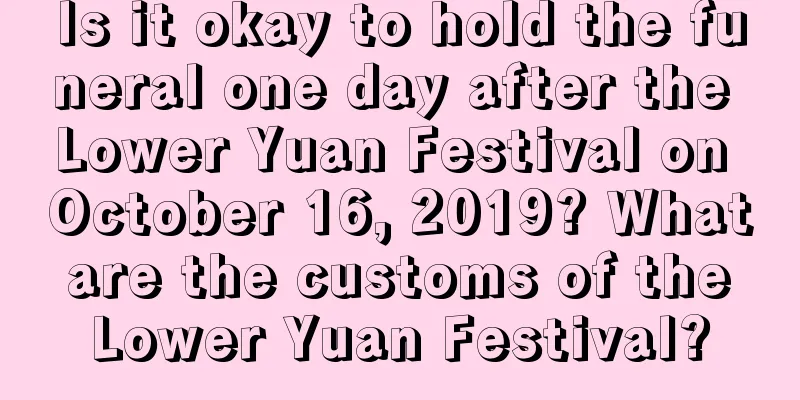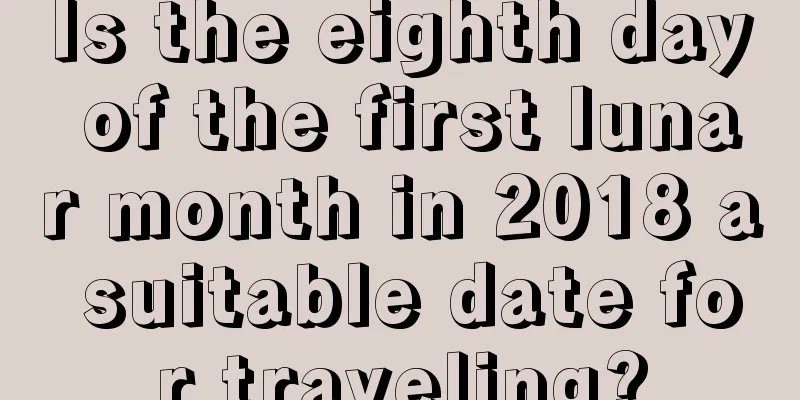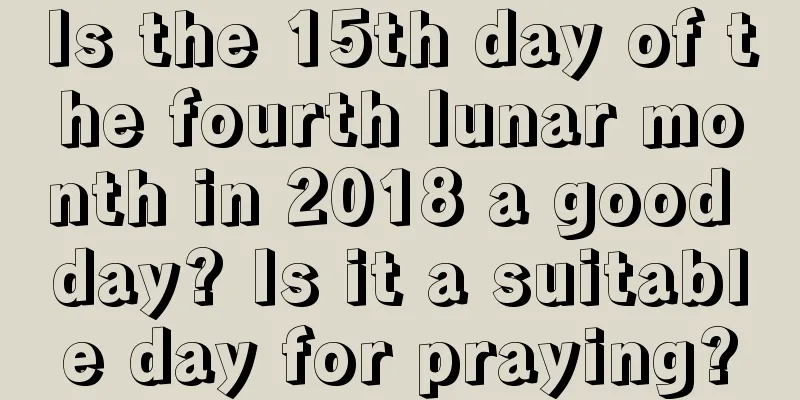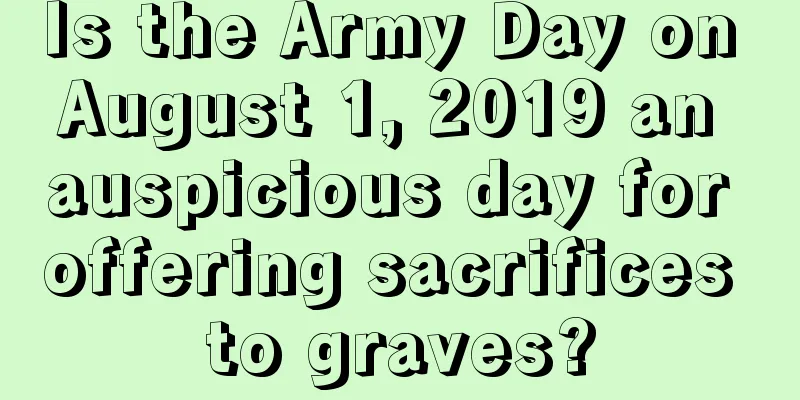Is it okay to hold the funeral one day after the Lower Yuan Festival on October 16, 2019? What are the customs of the Lower Yuan Festival?

Introduction: Funeral is an important event, so an auspicious day should be chosen for the funeral. So is it okay to hold the funeral one day after the Lower Yuan Festival on October 16, 2019? What are the customs of the Lower Yuan Festival? The tenth month of the lunar calendar is the first month of winter every year, which means the arrival of winter. Let’s follow Shuimoxiansheng.com to take a look at the relevant content of the tenth month of the lunar calendar in 2019.Is it okay to hold the funeral on October 16, 2019, one day after the Lower Yuan Festival?2019 Lunar October 16th day after the Lower Yuan Festival almanac query:Lunar calendar: October 16, 2019 Gregorian calendar: November 12, 2019, Tuesday, Scorpio 【Today’s lunar calendar is suitable】 Nacai fasting and offering sacrifices to seek offspring, erecting pillars and raising beams, taking in livestock, opening warehouses, raising livestock, tailoring clothes, meridians [Today’s taboos in the almanac] Moving, moving into a new house, planting incense, setting up a bed, getting married, returning home, traveling, opening a business, seeking wealth, building, breaking ground, funerals , burials Offering sacrifices and praying for blessings, breaking ground, building dams and releasing water, taking up posts, buying property, sailing, building houses and collecting wealth From the above content of the old almanac, we can know that today's burial [i.e. funeral] is taboo in the almanac, so the day after the Lower Yuan Festival in 2019 is not suitable for funerals! What are the customs of the Lower Yuan Festival?Xiayuan Festival Folk Customs: Offering Sacrifice to AncestorsAs time goes by, the Lower Yuan Festival has gradually evolved into a traditional festival for the people to prepare rich dishes, offer sacrifices to the souls of their ancestors, and pray for blessings and good fortune. Ancestor worship is a reflection of ancestor belief. Human beings’ belief in their ancestors is human beings’ worship of themselves. Believing in ancestors, worshipping them, and showing respect to their souls are all for the purpose of praying for their blessings on future generations. The emergence of ancestor worship is related to the ancient concept of soul belief. Primitive people believed that all things have souls and that the human soul exists independently of the body. Since humans in primitive beliefs viewed themselves as a dual structure, namely a physical structure and a spiritual structure, they believed that the body could die but the soul lived forever. This is the concept of "immortality of the soul." It is this view of human soul that has led to the prevalence of the custom of ancestor worship. In order to pray that the souls of the ancestors will protect their descendants and save them from disasters and misfortunes, people hold sacrificial activities for their ancestors. Generally speaking, the method of worshipping ancestors is ancestral temples. The state has ancestral temples, and the common people have ancestral halls and family temples. Through sacrifices, people pray for blessings, fortune and luck. Different parts of the country have different customs in offering sacrifices to ancestors and seeking blessings. Among the people in Zou County, Shandong Province, a special banquet is held to offer sacrifices to ancestors on the day of the Lower Yuan Festival. People in Ningyuan County, Hunan Province, often hold festivals to welcome gods around the Lower Yuan Festival. Xiayuan Festival customs: praying to the gods Judging from the evolution of the content and objects of sacrifice, the Lower Yuan Festival has incorporated many sacrificial customs in agricultural production, making it an agricultural festival for worshiping gods, praying for disasters and evil spirits, and praying for a good harvest. In Putian, Fujian Province, every household will offer sacrifices to the water god in the fields in the evening of the Lower Yuan Festival, praying for moisture for the crops in the dry winter and for their safety during the winter. During the sacrifice, vegetarian food is placed on the table and incense sticks are inserted into the ridges of the fields to show piety. Folk customs of the Lower Yuan Festival: fasting and offering sacrifices The Lower Yuan Day is also one of the dates for fasting as stipulated in Taoist fasting rules. Taoism believes that all things that require the use of divine power, such as praying for blessings, warding off disasters, relieving suffering, apologizing, seeking immortality, prolonging life, and saving the dead, etc., all require fasting. The methods of practicing fasting can be roughly divided into two categories: one category has roughly three types, and the first is setting up fasting offerings. That is to say, an altar is set up to offer food and pray to the gods in order to pray for blessings and avoid disasters. There were nine ways of setting up altars in ancient times: the top three altars were for the state, the middle three altars were for ministers, and the bottom three altars were for the common people. In later generations, the establishment of altars gradually declined. Offering vegetarian food can “accumulate virtue and heal the disease”; second, fasting. The ancients would bathe and change clothes before offering sacrifices, and not drink alcohol or eat meat, in order to keep their external organs clean and their bodies and minds pure, to show their sincerity and respect. This was called fasting. Fasting can “harmonize the spirits and prolong life”; the Three Heart Fasts. Mental fasting can make the mind peaceful and tranquil. The other category has roughly nine: one is coarse food, two is vegetable food, three is diet, four is essence, five is teeth, six is light, seven is air, eight is original energy, and nine is fetal food. In addition, all rituals such as chanting, repentance, and sacrifices are also included in the scope of fasting. Folk customs of Xiayuan Festival: Folk customs of Putian On the 15th day of the tenth lunar month, many families in Putian would set up tables for food offerings, burn incense and offer silver tributes in the open space in front of their houses, and let their children use burning incense sticks to evenly insert them into small squares, which is called "Butian". This custom is said to be a sacrifice to the "dead souls", commonly known as "Pu Gu", which means to save the lonely souls. The eight-character destiny is predetermined for each person after birth. Knowing your fortune in advance can make your future life smoother. To calculate your fortune for the next ten years, please click on the "Excellent Calculation" below to get an advance prediction. I wish you a smooth life! |
<<: What are the do's and don'ts on November 19th of the lunar calendar in 2019?
>>: Query of auspiciousness and inauspiciousness of the 27th hour of the 11th lunar month in 2019
Recommend
Can the contract be signed on the 15th day of the 11th lunar month in 2021? Sign the contract, okay?
The pros and cons of signing a contract at differe...
Is the ninth day of June 2020 a good day? Is it an auspicious day?
Introduction: Different days unfold in different w...
What month is May in the lunar calendar of 2019? What are the suitable days for marriage?
Not every lunar month corresponds to the same sola...
What is the solar term Great Heat? Are there any customs during the Great Heat?
Introduction: Our country is a typical traditional...
What is the fate of a girl born on July 27th of the lunar calendar in 2020? Okay?
A lot of people are born every day. Different peop...
Is May 26th of the lunar calendar in 2022 an auspicious day? Which day in May is an auspicious day?
The fifth lunar month of 2022 is a long month with...
Is it possible to get married during the Beginning of Autumn in 2021? Is it okay to hold a wedding banquet?
With the arrival of the Beginning of Autumn, peopl...
Is Christmas Day on November 22, 2021 a good day? Is it suitable for traveling?
Winter month is coming, is November 22, 2021 a sui...
Where is the direction of the God of Joy on August 14, 2019, the Year of the Pig?
The God of Joy is in different directions every d...
Is November 23rd of the lunar calendar 2021 an auspicious day? Is it a good day to set up the bed?
The good and bad days of the lunar calendar are di...
Why can’t you lose your temper at the beginning of autumn? What are the taboos for the Beginning of Autumn in 2021?
The ancients regarded the Beginning of Autumn as a...
Is the 17th day of the twelfth lunar month in 2019 an auspicious day and suitable for praying and burning incense?
There are auspicious and inauspicious days in the ...
Is the fate of people born in the year of Frost Descent in 2019 good? What is the zodiac sign of children born in the year of Frost Descent?
Introduction: People born on different days have d...
Is September 24th of the lunar calendar in 2021 an auspicious day for travel? How is your fortune?
When we were young, our family members would alway...
Is May 18th of the lunar calendar in 2020 an auspicious day for tomb repair? What is needed for tomb repair?
Introduction: Generally, it is necessary to choose...









